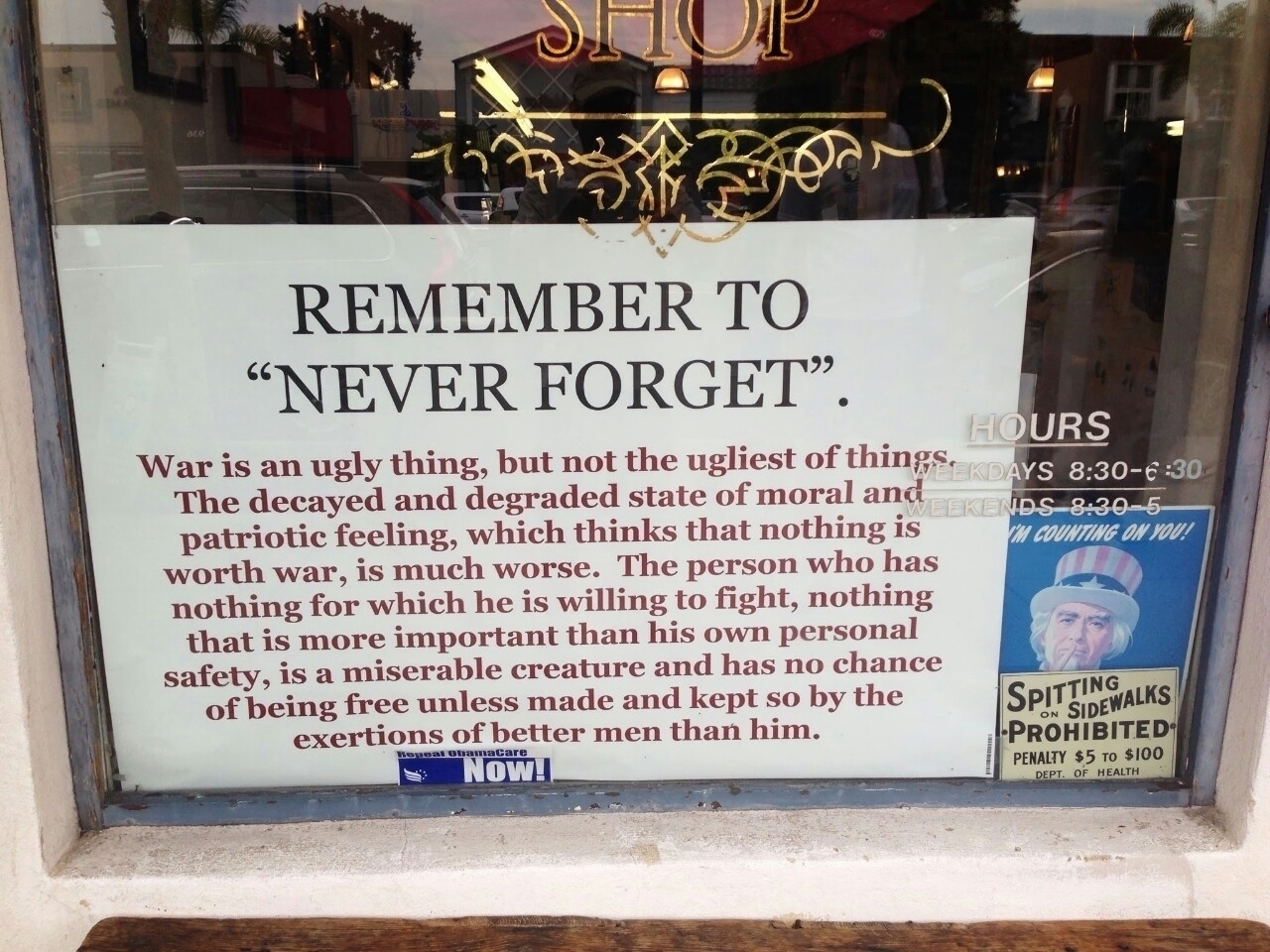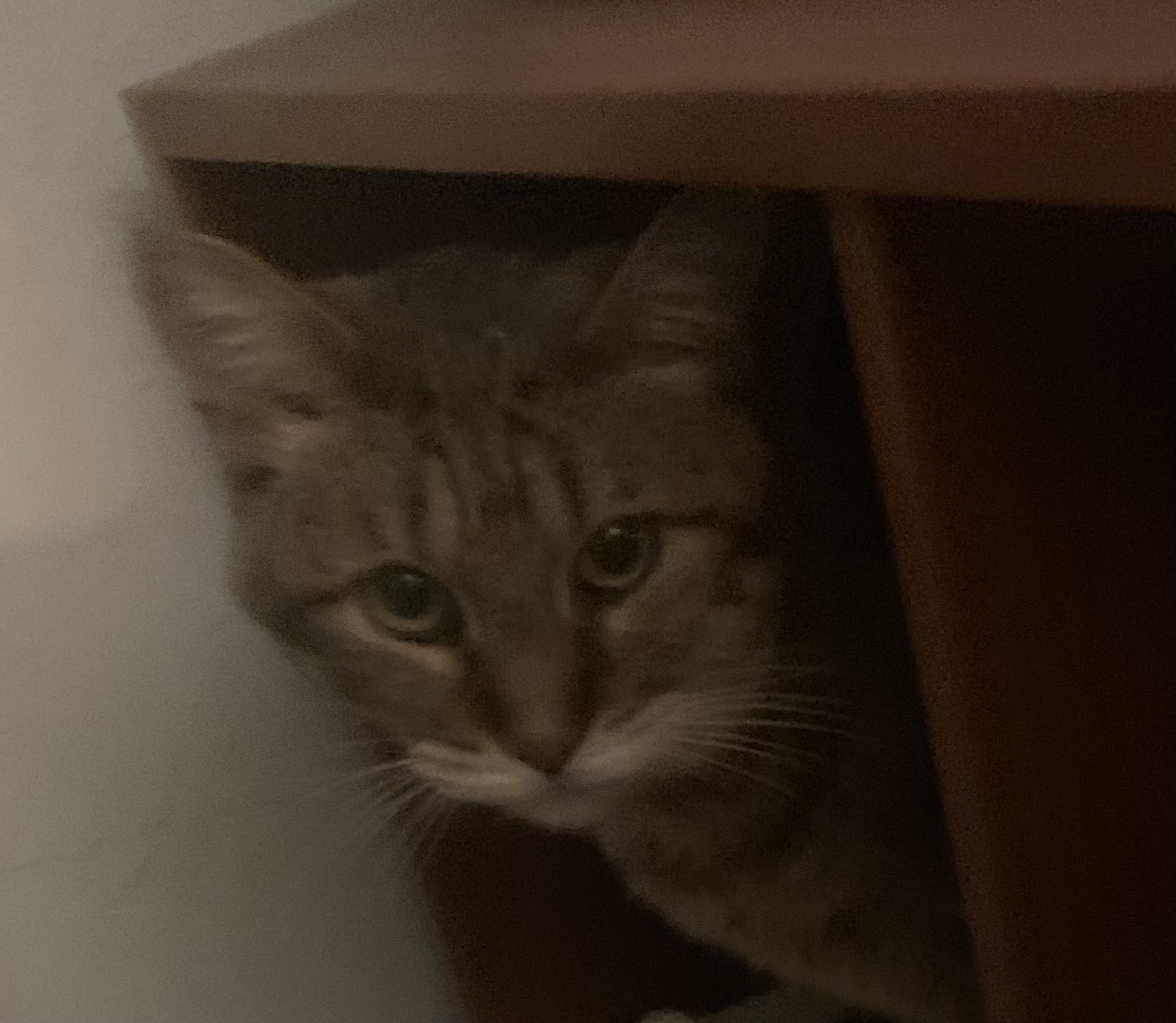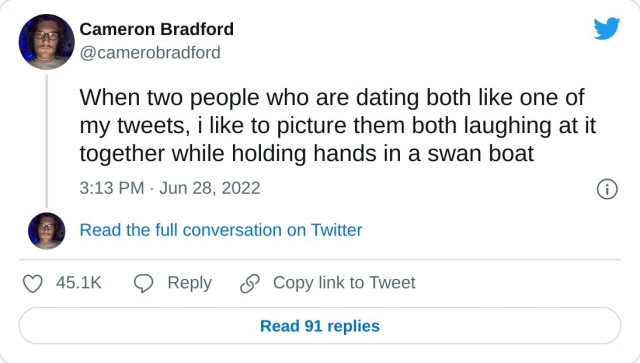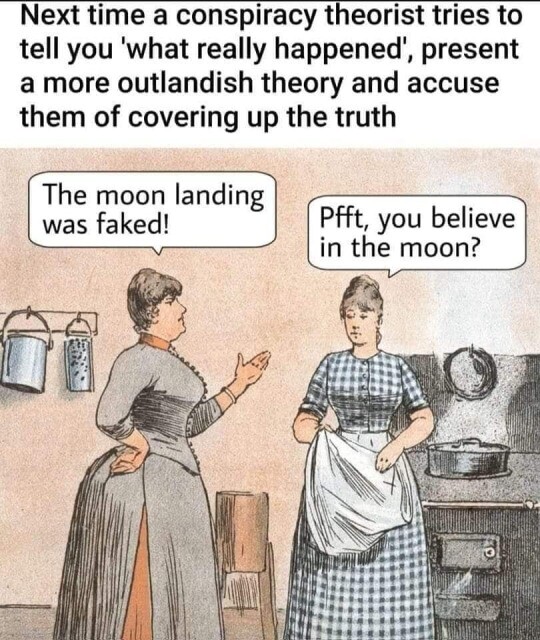My latest: Surviving the AI job apocalypse. AI won’t kill the human race or take everybody’s job. But the workplace will be transformed, and some jobs are at risk. Workers are already starting to adapt.
I recently came across the IndieWeb concept of POSSE. Not the first time I’ve seen it, but this time I read it more closely and said, “Holy cow, there’s a name for the way I’ve always preferred to use social media?”
It should be called “POSCE”—“Publish on your Own Site, Copy Elsewhere.” It’s a more understandable explanation of the concept. Though understandability isn’t a great strength for the IndieWeb movement.
Suddenly, It Looks Like We’re in a Golden Age for Medicine. David Wallace-Wells / NYTimes.
Hard to reconcile with our disastrous Covid response. We did better with the 1918 flu.
I’m fiddling with my RSS/read-it-later setup—again!
This is an area I’m never satisfied with, and I seem to fiddle with it every few months. I find Inoreader is a mixed bag as a reading environment, though I’m continuing to use it because it’s unparalleled for filtering massive numbers of RSS feeds to find a few details that I need for my work.
So I’m experimenting with moving more over to newsletters, and then comes the question of what’s the ideal tool for reading newsletters. Inoreader? Matter?? Readwise Reader
I’m finding, to my surprise, that the ideal tool for reading newsletters may be … wait for it … email.
I do not share the general Mac power-user enthusiasm for tools that parse articles to strip out ads and make everything look the same. I find they introduce enough problems that they’re not hugely superior to the originals.
There will never be another Harrison Ford
The guy’s 80, and instead of sliding into the traditional role of lifetime achievement award winner, memoir writer and maker of occasional cameo appearances, he’s back on billboards and the sides of buses for “Indiana Jones and the Dial of Destiny.”
Meanwhile his roles in “1923” and “Shrinking” could very well deliver not only his first Emmy nomination but his second as well.
Oh, and he just finished shooting his first Marvel movie, “Captain America: Brave New World,” in which he plays American President Thaddeus “Thunderbolt” Ross (a role formerly filled by the late, great William Hurt), who may or may not turn out to be the Red Hulk.
— Mary McNamara / LA Times
As AI becomes more prevalent, a vast underclass of people training the machines is emerging worldwide. Josh Dzieza reports in depth for The Verge.
There are people classifying the emotional content of TikTok videos, new variants of email spam, and the precise sexual provocativeness of online ads. Others are looking at credit-card transactions and figuring out what sort of purchase they relate to or checking e-commerce recommendations and deciding whether that shirt is really something you might like after buying that other shirt. Humans are correcting customer-service chatbots, listening to Alexa requests, and categorizing the emotions of people on video calls. They are labeling food so that smart refrigerators don’t get confused by new packaging, checking automated security cameras before sounding alarms, and identifying corn for baffled autonomous tractors.
Ephemera XCII: Star-Spangled Ding-Dongs
Not to brag but I just selected the perfect size container for Julie’s leftover chili.
I saw this sign 10 years ago today in a barbershop window in Coronado.

Casey Newton at Platformer: How the Kids Online Safety Act puts us all at risk
Happy Independence Day to all of my American friends, and may you finish the day with the same number of fingers with which you began it.
RIP Frank Field, a local New York TV weatherman who was a fixture of the television landscape when I was a kid in the 70s. He was 100 years old.
Field, who died Saturday, was an evangelist for the Heimlich maneuver, which saved his life in 1985.
He was dining at a Manhattan restaurant with the CBS sportscaster Warner Wolf when a piece of roast beef became lodged in Dr. Field’s throat. “There was no pain,” he later told The New York Times. “I tried to swallow and could not. I tried to cough. I was perfectly calm, until I realized I couldn’t breathe.” He was also unable to speak to Mr. Wolf to convey his distress.
“So I pointed to my throat and stood up, to give him access,” Dr. Field said. “He did it the first time, and it didn’t work. I thought: ‘My God! It doesn’t work. If I fell unconscious, I wouldn’t make the 11 o’clock news.'”
When Mr. Wolf tried again, he expelled the meat.
“Warner had never done it,” Dr. Field said, “but he had seen me demonstrate it on television.”
Frank Field, Who Brought Expertise to TV Weathercasting, Dies at 100 (NYTimes / Richard Goldstein)
President Eisenhower signed the National Highway Act, “the largest infrastructure project in American history,” July 3, 1956—68 years ago today. The hosts of the This Day in Esoteric Political History podcast “are joined by Eddie Alterman, longtime editor of Car & Driver magazine, to discuss how the highway network reshaped the country and changed car culture.”
This Day in Esoteric Political History: “The Great American Road Trip”
I had thought the end of “Endeavour” might take place immediately prior to the first season of “Inspector Morse.” But then I thought that was wrong of me, because Shaun Evans is so much younger than John Thaw was.
Or not. Today I learned Thaw was 45 at the beginning of “Morse,” and Evans is 43.
Lovely, sad ending to “Endeavour.”
We have watched four episodes of “Silo,” and so far, I would absolutely live there. Friendly people, everyone dresses comfortably, earth tones and sweaters. Plenty of stairs for aerobic exercise. No computers more complicated than MS-DOS 5. Don’t have to worry about sunscreen. No mosquitoes.

Currently reading: Angels Flight by Michael Connelly 📚

Finished reading: Blood Work by Michael Connelly. Not his best, but very good nonetheless. This is the sixth Connelly novel I’ve read since January; I read his first several years ago. I think I’ll start the next one right now. 📚
Supermarket speedrun: 40m22s.
 That moment when you're finishing up a big project that's the last thing you need to do before a four-day weekend and your mouse decides it's angry at the Mac and they're not talking anymore.
That moment when you're finishing up a big project that's the last thing you need to do before a four-day weekend and your mouse decides it's angry at the Mac and they're not talking anymore.
 Amazon Basics dog-poop bags come with documentation. Do people really need documentation to figure out how to work dog-poop bags?
Amazon Basics dog-poop bags come with documentation. Do people really need documentation to figure out how to work dog-poop bags?
The documentation is titled “Quick Start Guide,” suggesting that there is an in-depth manual available.
I enjoy Star Trek more when I’m able to not try to make it make sense.
I just completed a major project that I’ve been working on for weeks, and now I have to do it again for another project, also due today. And yet my brain is all used up from finishing the first project.
I’m not complaining. This is the definition of a privileged person’s problem. My work is in demand. But—
Oh, who am I kidding? I am absolutely complaining.
The dog and I saw this in front of a neighbor’s house this morning. You can tell they mean it.

Are you making changes to stay successful in your career as AI transforms workplaces?
Getting new training?
Sharpening some skills while letting others fall away?
Changing careers entirely?
How do you see AI changing your job?
This is for an article I’m writing.
Existential threats from AI aren’t on my list of things to worry about. That the super-rich and powerful are concerned is an indication that they’ve lost touch with reality.
That’s not what happened with Twitter. The Twitter acquisition was unique. I’ve never seen or heard of a situation where somebody was forced to acquire a company against his will.
As a business/technology journalist, I’ve covered many M&A deals. Often, they start hostile, then both parties reach a deal and it ends quietly.
Russia was just like that, but with tanks.
Ian Welsh predicts that the US will be a big loser of the Ukraine war, ending the US global hegemony. The war demonstrates that countries can successfully defy the US. China will support defiant nations against US sanctions.
Welsh makes a credible case. I’m insufficiently informed to have my own opinion.
Welsh’s article went up yesterday, before the latest shenanigans.
Yes, the war is going badly for Russia, and was even when Welsh posted. That does not undercut Welsh’s arguments.
“It is a truth universally acknowledged that an American billionaire, in possession of sufficient fortune, must be in want of a Supreme Court justice.” (Alexandra Petri / The Washington Post)
Lemmy and Kbin potentially change the face of at least part of the Fediverse, making it more Reddit-like, focused on topics and content, rather than individual people.
“Stunning”—Midjourney update wows AI artists with camera-like feature (Ars Technica / Benj Edwards) You can zoom images out to show more background. Sweet!
I’ve surprised myself how much I enjoy playing with Midjourney. I’m not generally a visual-arts person.
Logseq vs Obsidian: find the best note app for productivity needs. I am occasionally tempted by Logseq. Stop me before I change note-taking apps again!
A viral search helped a radio host track down a man she spontaneously kissed at a music festival. (KTLA / Taylor Delandro) Aww.
Why Some Americans Buy Guns (NY Times / Roni Caryn Rabin) Confirming yet again that if you own a gun, it’s more likely to be used against you than against anybody else.
A Titanic Disparity in How the World Responds to Maritime Disasters “All travelers, whether migrants or millionaires, deserve rescue. The global response to the Titan’s disappearance should be the model for how we respond to migrant vessels in distress.” (Democracy Now!)
Hearbreaking details on the recent tragedy in which 700 people died when the refugee ship Adriana sank off the coast of Greece, under the watch of the Greek Coast Guard.
Still thinking about last night’s episode of “Star Trek: Strange New Worlds.” It was about assimilation and passing, subjects close to me. I’m a Jewish American who mostly doesn’t act Jewish, sound Jewish, or even have a Jewish name. Passing is my default mode.
"…. Reddit is blindly following Digg’s failed path." (Steven Vaughan-Nichols / ZDNet)
Gearlinx taps the cloud for ‘Network Resilience as a Service’. Gearlinx provides network resilience and network operations as a service, using cloud software and a hardware device it calls a Duckfone. I talked 1:1 with company president Todd Rychecky, who newly joins Gearlinx after 14 years at competitor Opengear. Read about it at Silverlinings. Thanks to Diana Goovaerts, who contributed to this story.
That was one of the best Star Trek episodes I’ve ever seen. Moving and inspirational.
We often get caught up condemning America’s failures, when what we should be doing is inspiring America to live up to its highest self. Why did so many Japanese-Americans who were interned wrongly during World War II go on to live as patriots?
Vulcans are assholes.
I was just reminded that we moved to San Francisco on Halloween and moved away on Halloween. This seems somehow significant.
Oracle says ‘oui’ to European cloud sovereignty. Big Red launches EU Sovereign Cloud to help enterprises satisfy European data privacy and sovereignty regulations. My latest, on Silverlinings.
Whenever I hear an anti-woke clown going on about soyboys, alpha males, beta males, and the importance of traditional masculinity, I think: A foundational value of traditional masculinity is physical courage.
I want to ask the clown: How much bullfighting have you done? What mountains have you climbed? What’s your military combat record?
I like a latte now and then, a beverage that wingnuts denounce fervently, enjoyment of which is a sure marker of beta males. When I have a latte, it’s soy or oat milk because regular milk makes me fart something fierce. Is farting an alpha-male thing?
Seven Rules For Internet CEOs To Avoid Enshittification (Mike Masnick / Techdirt)
These are good rules for building a healthy Internet business, or a healthy business of any kind. All the rules are built on the first: “Tell your investors that you’re in this for the long haul and they need to be too.”
Also: Treat the users as the cherished asset that make your site useful and valuable. Users are not products that should be exploited and used up.
When the press talks about the layoffs and chaos generated by a series of completely pointless mergers the blame always falls on ambiguities like a “weakening macroeconomy” and not, say, blistering incompetence by the fail upwards trust fund brunch-lords in the c-suite, obsessed with setting their brands on fire just for a tax break and a fat bonus.
— Warner Bros Discovery Merger Gets Dumber As Layoffs Continue And Company Licenses Streaming Content To… Netflix. (Karl Bode / Techdirt)
“Cellphones were for emergencies, or for calling people when you were drunk.” Dan Kois at Slate asks fellow GenXers to reminisce about technology, work, socializing and entertainment in the long-ago time of 2002.
VMware’s plan for cross-cloud conquest. I talked 1:1 with Vittorio Viarengo, VMware VP of cross-cloud services, about plans to prosper by delivering software to unify applications across multiple clouds and on-premises. But will those ambitions survive the Broadcom acquisition? Read about it on Silverlinings—and read to the end for links to Viarengo’s music videos.
On Today in Tabs, Rusty Foster has a good backgrounder on the Titanic submersible:
Ok look, in my spare time I do volunteer wilderness search and rescue, so I am the last person to look askance at anyone for doing stupid things in the name of pointless adventure. If your soul calls you to risk death on a mountain in Maine, I will do my best to reach you in time, and if it calls you to die in a carbon fiber and titanium can at the bottom of the Atlantic, I will salute you and hope for your sake it was a hull breach, comrade. 🫡
Much of it is in the form of a FAQ:
Is this submersible, like… safe?
Lmao no….
Meanwhile, on Twitter, free speech absolutist Elon Musk has declared “cis” and “cisgender” to be slurs.
Good heavens, I’ve been calling myself “cis” since I first heard the word. I use it to describe myself whenever I opine on LGBTQ issues, to disclose my perspective. This comes up more often than you might expect, because opining about things is what I do.
Businesses have been laying people off and breaking promises to workers for 40+ years, and now these businesses think remote work is the reason employees aren’t committed. So therefore these businesses are banning remote work—thereby breaking another promise, made in 2020-22, that remote work would be forever.
When Minnie and I walk in the park, we like the opportunity to say hello to other dogs. This was a funny looking dog. 📷

I’m surprised the Republicans don’t like Hunter Biden. Guns and tax dodging are essentially the party platform.
“Should this trend persist, we may witness the largest domestic migration crisis since the Dust Bowl upheaval of the 1940s…. [Persecution is] now driving a significant migration within the United States of not just transgender individuals, but also the broader LGBTQ+ community, their families, and their allies.”
Samuel L. Jackson Is Confused Why He’s Not in ‘Black Panther’ Movies (Samantha Bergeson / IndieWire) “I’m still trying to figure out why I’ve never been to Wakanda.” Also, he has a healthy attitude toward not winning Oscars or doing prestige movies. “… once I got over it many years ago, it wasn’t a big deal for me.”
Can IBM bring Watson back to life?. Watson never fulfilled the promise it showed during its spectacular 2011 Jeopardy debut. But IBM has a bold plan to restore the AI’s faded stardom. My latest, on Silverlinings.
Every self-help book ever, boiled down to 11 simple rules. Outstanding life advice. I plan to write a short outline of this article and consult it regularly. (Chris Taylor / Mashable)
We get a lot of ravens and/or crows around here. Julie found this article about how to tell them apart. Still, I remain low in confidence as to my ability to distinguish them.
A toymaker and doctor partnered to create Resusci Anne, a doll to teach people how to perform CPR. The face of the doll was based on an unknown woman believed drowned in the Seine in the 1880s, who was celebrated in books and poetry as l’Inconnue de la Seine, or the Unknown Woman of the Seine. On the Criminal podcast: “The Unknown Woman.".
Marc Maron interviews Quinn Cummings, writer and former child star who won the Best Supporting Actress Oscar when she was 10 years old for her role on “The Goodbye Girl.”
Quinn tells Marc why she rejected acting after her early success and why she prefers to write. They also talk about homeschooling, avoiding marriage and how Quinn became a patent-holding inventor.
Cummings reminds me of those people who used to appear on talk shows in the 1970s for no other reason than because they were great at talking.
“We are living through the end of the useful internet.”
The Last Page of the Internet, by Alex Pareene:
The internet’s best resources are almost universally volunteer run and donation based, like Wikipedia and The Internet Archive. Every time a great resource is accidentally created by a for-profit company, it is eventually destroyed, like Flickr and Google Reader. Reddit could be what Usenet was supposed to be, a hub of internet-wide discussion on every topic imaginable, if it wasn’t also a private company forced to come up with a credible plan to make hosting discussions sound in any way like a profitable venture.
We are living through the end of the useful internet. The future is informed discussion behind locked doors, in Discords and private fora, with the public-facing web increasingly filled with detritus generated by LLMs, bearing only a stylistic resemblance to useful information. Finding unbiased and independent product reviews, expert tech support, and all manner of helpful advice will now resemble the process by which one now searches for illegal sports streams or pirated journal articles. The decades of real human conversation hosted at places like Reddit will prove useful training material for the mindless bots and deceptive marketers that replace it.”
Reddit is speedrunning enshittification.
Hypothesis: The owners of the company are no longer interested in keeping the business going, and are just trying to maximize financial return by selling off every possible asset.
In Reddit’s case, the upcoming IPO isn’t the beginning of a new chapter in the business. It’s the end of the business.
The most valuable part of Reddit is its fat corpus of content, built by volunteers over many years, suddenly made valuable for training AI. Now, Reddit’s corporate owners want to sell access to that corpus. That is Reddit’s new business. It’s not a long-term business, because the corpus will decay in value over time. But it’s enough for the owners to cash out.
I’m inspired in this thinking by yesterday’s edition of Rusty Foster’s “Today in Tabs.”. I don’t think he’s making this exact point, but he’s putting all the dots down, without necessarily connecting them.
John Gruber at Daring Fireball notes that OpenAI already scooped up Reddit’s corpus of data when the APIs were free. The data has no value anymore.
Reddit already gave all its data to large companies for free. Huffman is trying to charge now for horses that were let out of the barn years ago. And he obviously doesn’t care about Apollo or other third-party Reddit clients, or what these moves do to Reddit’s reputation as a platform vendor. He’s just trapped in a fantasy where investors are going to somehow see Reddit as a player in the current moment of AI hype.
Also, on Ryan Broderick’s Garbage Day: “Platforms Don’t Really Make Sense Anymore”:
We tolerated large platforms, that were never all that good to begin with, because they were convenient and useful and part of a larger interconnected network of tools and apps and systems that made the digital world safer and more dynamic. So you’d think, if they were actively deciding to stop being part of that larger system and no longer interested in making the internet, as a whole, function better, they would, at the very least, try and be more convenient! But instead we’ve ended up in a situation where all the local stores are gone, Main Street is deserted, and the large Walmarts on the edge of town are being set on fire and left to rot.
I’m going to move linkblogging to other platforms, primarily Facebook, atomicrobotlive.tumblr.com, @mitchw@mastodon.social, and maybe mitchw.bsky.social. I’ll keep using mitchw.blog for my own original writing, images, and other content. This will continue until it doesn’t.
An Anti-Porn App Put Him in Jail and His Family Under Surveillance. After an Indiana man pleaded not guilty to possession of child pornography, courts installed Covenant Eyes spyware on the phones and other electronic devices of everybody in his family as a condition of his release before trial. The man went to jail after the software reported someone using his wife’s phone went to Pornhub. She says it never happened—it’s a bug in the software—and tests of the software confirm that’s very possible.
Julie found this in her papers. I was the one with the PalmPilot; she never had one.


Do you believe in life after death? Are you sure you know? Really sure?
We’ll watch any TV show with a main character whose first name is DCI.
The Binge Purge. TV’s streaming business model is broken.
A good long read by Josef Adalian at Vulture.com:
It’s absolutely conceivable that the streaming subscription model is the crypto of the entertainment business. Like cryptocurrency, which has created massive on-paper fortunes built atop 1 + 1 = 3 arithmetic, streaming TV has always seemed too good to be true but seduced a lot of smart people anyway.”
Also, about a TV adaptation of “Field of Dreams” by Mike Schur, who created “The Good Place:”
Peacock pulled the plug on Schur’s TV adaptation of Field of Dreams even though it was deep into preproduction. “They just changed their mind,” says Schur. “They didn’t want to spend the money anymore.” He notes that the project will have one lasting artifact, perhaps the ultimate monument to Peak TV’s unfulfilled potential: “We built a baseball stadium in a cornfield in Iowa that’s still sitting there as we speak.” They built it, and nobody came.
This is a working weekend for me. I had trouble writing, but I think I have it under control now.

Lulu says hi.

I usually listen to podcasts on my walk but today I listened to this.

And more good advice about exercise and fitness. It’s easier than you might think.
-
It doesn’t matter a lot how fast you walk.
-
Forget about the US government’s guidelines of “at least 150 to 300 minutes of moderate-intensity aerobic activity” per week. Too confusing.
Well, I’d like to see ol Donny Trump wriggle his way out of THIS jam!
Trump wriggles his way out of the jam easily
Ah! Well. Nevertheless,
That’s a popular meme from 2016 that still holds up.
Gavin Newsom wants 28th Amendment for guns in U.S. Constitution. The amendment doesn’t go far enough. Swing for the fences. Repeal the Second Amendment outright.
OpenAI Hit With First Defamation Suit Over ChatGPT Hallucination. A Georgia radio host is suing OpenAI after ChatGPT generated a fictional embezzlement suit against him.
The Apollo story is even uglier. Apparently, Reddit CEO Huffman is telling people that Apollo developer Christian Selig tried to blackmail Reddit for $10 million. Selig says that’s bullshit and he has recordings to prove it.
According to Selig, he said something on a call with Reddit officials that the officials initially took as blackmail. He said it was nothing of the kind, and explained himself, and the Reddit officials apologized—five times.
Enshittifying the Internet seems to be a theme this week. In addition to Reddit knifing third-party apps, Wordpress is adding generative AI capabilities to its blogging software, which will only lead to an explosion in clickbait search engine spam. It’s a naked revenue grab by Wordpress’s parent company, Automattic, at the expense of making the Internet vastly less usable for the rest of us. I thought Automattic was better than that.
Today is a day of petty disappointments. I’ve had a couple of business developments that are discouraging. Hopefully, they’ll come to nothing, but they’re discouraging in the moment.
Also, my five-year-old Macbook Pro is getting flaky. I’ve noticed the Internet slows to a crawl at lunchtime. Do you know what I like to do at lunch? Read things on the Internet. Do you know what I don’t like doing at lunch? Troubleshooting network problems.
Because the Macbook is so old, I routinely reboot it in the morning to optimize performance. Today, I also had to reboot it at lunch to make those networking problems go away. Yesterday, I returned from stepping away from my desk and found the MacBook had spontaneously rebooted itself, which is never a good sign.
I do not have a new MacBook in the budget this year.
I’m disappointed that Reddit is jacking up its API pricing and forcing developer Christian Selig to shut down his Reddit app Apollo. It’s one of my favorite iPhone and iPad apps. It feels like Reddit is flipping a big fat middle finger to me and many other people who enjoyed using Apollo.
I use Apollo to find about half of the memes, vintage ads, vintage photos, and other found media that I post regularly to Facebook and Tumblr. If you’ve enjoyed seeing those, then Reddit is flipping you the bird too.
I also use Tumblr to find those found media, and I’m not thrilled with the direction Tumblr is taking either.
UPDATE: A friend reminds me that Reddit is essentially killing all third-party apps, not just Apollo.
To me the Macintosh has always felt more like a place than a thing. Not a place I go physically, but a place my mind goes intellectually. When I’m working or playing and in the flow, it has always felt like MacOS is where I am. I’m in the Mac. Interruptions — say, the doorbell or my phone ringing — are momentarily disorienting when I’m in the flow on the Mac, because I’m pulled out of that world and into the physical one.
— John Gruber, Daring Fireball: First Impressions of Vision Pro and VisionOS
Yes! And the same is true for me on the iPad and also on the iPhone (but less so). And it’s not specific to Apple products; it’s true for any computer, tablet or phone.
And when I go to Facebook or other social media platforms or read RSS feeds, it’s like traveling to other places. Indeed, it sometimes surprises me to think how much time I spend physically in one room of the house because it feels like I’ve been out and about all day.
Gruber is discussing this feeling of placeness in the context of the Apple Vision Pro, which he tried, and how it will vastly enhance the sense of place when using computers.
The most impressive feature of Vision Pro is that it enables you to hang multiple virtual 4K displays all around your field of vision, some as big as the broadest widescreen TVs.
Gruber again:
Last night I chatted with a friend who, I found out only then, has been using Vision Pro for months inside Apple. … he spent weeks feeling a bit constrained, keeping his open VisionOS windows all in front of him as though on a virtual display, before a colleague opened his mind to spreading out and making applications windows much larger and arranging them in a wider carousel not merely in front of him but around him. The constraints of even the largest physical display simply do not exist with VisionOS.
I absolutely expect to buy the Vision Pro. But not at its opening price of $3,500. We don’t have that kind of money lying around (especially because Julie wants one too). But I expect the price will come down to an affordable range in three to five years.
No, a rogue AI drone simulation did not kill its operator, despite recent news reports. Why make up a story about something like that? Because it enforces the narrative that AI is super-powerful and threatens human extinction, which is bullshit. But it’s profitable bullshit for AI grifters, who are literally the same people who were peddling crytop/blockchain grift untill last year.
Cory Doctorow:
If the problem with “AI” (neither “artificial,” nor “intelligent”) is that it is about to become self-aware and convert the entire solar system to paperclips, then we need a moonshot to save our species from these garish harms.
If, on the other hand, the problem is that AI systems just _suck _and shouldn’t be trusted to fly drones, or drive cars, or decide who gets bail, or identify online hate-speech, or determine your creditworthiness or insurability, then all those AI companies are out of business.
Take away every consequential activity through which AI harms people, and all you’ve got left is low-margin activities like writing SEO garbage, lengthy reminisces about “the first time I ate an egg” that help an omelette recipe float to the top of a search result. Sure, you can put 95 percent of the commercial illustrators on the breadline, but their total wages don’t rise to one percent of the valuation of the big AI companies.
For those sky-high valuations to remain intact until the investors can cash out, we need to think about AI as a powerful, transformative technology, not as a better autocomplete.
We literally just sat through this movie, and it sucked. Remember when blockchain was going to be worth trillions, and anyone who didn’t get in on the ground floor could “have fun being poor?”
At the time, we were told that the answer to the problems of blockchain were exotic, new forms of regulation that accommodated the “innovation” of crypto. Under no circumstances should we attempt to staunch the rampant fraud and theft by applying boring old securities and commodities and money-laundering regulations. To do that would be to recognize that “fin-tech” is just a synonym for “unlicensed bank.”
The pitchmen who made out like bandits on crypto — leaving mom-and-pop investors holding the bag — are precisely the same people who are beating the drum for AI today.
Ted Cruz is citing the Bible and preaching on Twitter in defense of gay people, and it’s quite something. I suspect that Cruz is trying to play some kind of five-dimensional chess here that will actually turn out to be anti-LGBTQ when the story comes out in full.
Why Is Everyone Watching TV With the Subtitles On?. By Devin Gordon at The Atlantic. Good article, but takes a long way to get to the real explanation, which is that the sound quality of streaming TV is rubbish.
I have a pet theory that a four- or even three-star review would be fine in a rational universe. Ride in an Uber, and the driver gets you there safely, on time and the driver is reasonably personable? Three stars.
Four stars if the driver gets you there on time despite traffic, helps you with a massive amount of luggage, or you have a fascinating conversation.
Save the five-star reviews if you have a cardiac event and the driver restarts your heart.
But because I am not a sociopath, I do like everybody else and routinely give five-star reviews for acceptable service. I rarely give as low as four stars because I know that’s a big deal for the gig worker who provided the service.
I, for one, appreciate Roman numerals.
AI chatbots lose money every time you use them. That’s a problem.. By Will Oremus at The Washington Post
Businesses are laying off writers because ChatGPT can do the job. What will those businesses do when AI companies stop giving away the product?
On this day of the big annual Apple product launch, I’m remembering that day many years ago when Julie and I went to the Terminator experience at the Universal Studios theme park on vacation.
All these theme park experiences have the same storyline: The audience is supposedly dignitaries taking a VIP tour of some science-fiction location. And Something Goes Terribly Wrong, and the special effects start going off around you.
In the case of the Terminator experience, the audience–which included me and Julie that day–were supposedly journalists at a press conference for Cyberdyne Systems, unveiling its new Terminator model robot soldier.
And, of course, the Terminator runs amok and starts blowing things up and disrupts the press conference.
The funny thing is that I am a journalist, and Julie did tech PR for most of her career. And we have both been to a million product launch press conferences.
So there we were on vacation doing a science fiction simulation of the exact same things we did at work every day.
Writing a corporate blog this morning, I was able to dodge using the word “paradigm,” but I couldn’t resist “holistic” and “actionable.”
Coming back from the grocery store, I dropped six bottles of iced tea in the driveway and gave the neighborhood children vocabulary lessons.
When reading genre novels, often my favorite parts are the parts before the bad things start happening.
That’s particularly true for Stephen King. I want the Torrances to have a nice winter at the Overlook Hotel.
It’s true most of all for one of my favorite of his novels, “11/23/63.” I loved the story of a rootless man from 2010 Maine who finds community and love in 1960 Texas. I was far less interested in the hunt to stop Lee Harvey Oswald.
Idea for the beginning of a horror story: A friend mentioned recently that he works in a six-story building. His job takes him up and down from floor to floor all day. He likes to use the stairs instead of the elevator. To clear his mind, he counts the stairs as he goes.
Here’s the story idea: One day, the count changes.
Stephen King, if you’re reading this—no charge.
Ashton Applewhite: We talk too much about generations. People who happen to have been born at around the same time don’t have much in common. Let’s Climb Out of the Generation Trap..
I read her book “This Chair Rocks: A Manifesto Against Ageism” last year, and loved it.
The Passover origin story of matzoh. It’s not supposed to taste good.
📺 We watched the final two episodes of "Succession." I have thoughts. SPOILERS
I’m seeing some talk that Tom isn’t the winner because he’s just Matsson’s puppet. But Tom is definitely the winner. All he ever cared about was the money, buying luxuries, and the appearance of power and he got all those things. He doesn’t care about the reality of power.
Tom will remain perfectly loyal to Matsson—until the moment Tom sees it as advantageous to throw his loyalty to someone else. Probably Matsson knows this, and sees Tom as a useful tool.
The same person who said Tom isn’t the winner also compared Tom dismissively to Gerri. That’s nuts. Gerri is one of the winners of “Succession.” She was Logan’s loyal consigliere and assassin for 30 years, and she cashed out big and walked away.
Justine Lupe, who played the high-end-callgirl-turned-wife Willa, also played Astrid Weissman, Midge’s sister-in-law on “The Marvelous Mrs. Maisel.” Her role on “Maisel” is extremely different from Willa. On “Maisel,” she’s a the perfect midcentury upper-middle-class American housewife and mother, a shikse who converted to Judaism to marry a Jewish man and is now more Jewish than her Jewish family.
I love the video playing in Conner‘s apartment, and the kids’ faces as they watched it. We saw another side of Logan there, away from the kids and relaxed, affectionate and warm. Frank, Gerri, Karl and Jess were Logan’s real family, the people he loved and who loved him. Kendall, Roman and Shiv were not part of that family, and they knew it. Connor, on the other hand, was part of that family.
The entire four-year “Succession” story could have been told from Frank and Karl’s perspective, and it would be a very different story.
Why did Shiv vote the way she did? I don’t think we ever get a definitive answer in the show, but I think it was because in the end she just couldn’t stand to see Kendall win. According to discussion on Reddit, there’s a scene just before the vote when Kendall puts his feet up on Logan’s desk, and you see a look of disgust cross Shiv’s face. Neither Julie nor I saw that.
As the CEO’s wife, Shiv is in a better position as Kendall’s sister. But I don’t think she was calculating it through that far until after Tom was named CEO.
Of course, Tom isn’t the real successor. Matsson is the successor.
Roman is finally out, and he is relieved. He never wanted the responsibility. He just wanted to pretend to be a playboy and now he’s back to that.
A theme that emerged throughout “Succession” is that the people who appear to be in power—Tom, the President of the United States—are not the people in power. The real people in power are the people who pay those other people: the Logans and Matssons. In “Succession” we spend a lot of two seasons focused on a Presidential election in which one of the candidates is a neo-Nazi, and it turns out to be a minor plot point, not worth resolving in the finale. Because that election just didn’t matter in the universe of “Succession.”
Shiv is the sort of woman misogynist who sees herself as the exception. She is not the exception. She has become her mother, and is married to a man who literally sits in her father’s chair.
I love the rare sweet moment at the end of the show where Logan’s wives and mistresses all came together as this little supportive sorority. Marcia even takes Kerry’s hand. They were all the women that Logan betrayed, and in the end they stood by each other. Although maybe not—in the universe of “Succession,” you never can assume love and decency is real.
Does Willa care about Connor after all? Or is she just in it for the money? Yes.
In the scene at the bar at the end, Roman orders Gerri’s favorite drink.
I don’t know if we actually enjoyed the final season of “Succession.” Watching it had become compulsive.
I kept expecting Roman’s dick pics to go viral on social media. They were Checkov’s dick pics, and they never were fired.
“Succession” creator Jesse Armstrong shares his view on where the characters go after the season finale: Tom isn’t just going to be an empty suit. He’s got a lot of hard work ahead of him. But he will never be anything other than Matsson’s dog.
Armstrong says Roman is back where he started; the whole multi-year arc was just a detour for him.
Armstrong: “Shiv is still in play … in a rather terrifying, frozen emotionally barren place.”
Also Armstrong: “For Kendall, this will never stop being the central event of his life, the central days of his life, central couple of years of his life… Maybe he could go on and start a company, or do a thing. But the chances of him achieving the sort of corporate status that his dad achieved are very low. And I think that will mark his whole life.”
Why does “Succession” get so much more journalism and social media love than “Yellowstone,” which has similar premises and themes and is far more popular among the viewing public? I think it’s because “Succession” centers on the media business and New York, and therefore has more appeal to journalists and the professional-managerial classes that dominate journalism and social media.
I’ve read that “Succession” is a blue show and “Yellowstone” is a red show, and there’s a lot of truth to that. But “Yellowstone” is more nuanced and ethically diverse and more broadly focused across class lines. Go figure.
In our house, we watch both “Succession” and “Yellowstone.”
ChatGPT and other LLM tools have already replaced some marketing and social media writers as many companies decide cutting costs is worth the drop in quality. ChatGPT took their jobs. Now they’re dog walkers and HVAC techs.


















